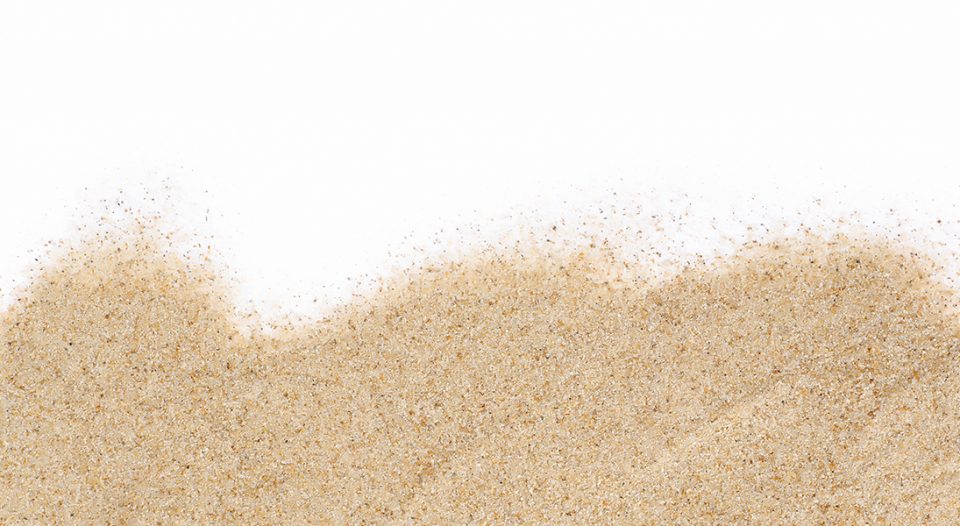I opened the door of the Catholic church where I had worshiped for the past several months, and when I habitually put my fingers in the small vessel that held holy water, I felt sand. I stared at my fingers, wondering what on earth was this. Every time I had attended mass, I enjoyed touching that water, remembering my baptismal identity and feeling refreshed. Now I felt dry, empty, thirsty—even a bit resentful.
I soon found out it was the congregation’s Lenten practice to exchange the water for sand in every small vessel at the doors, and even from the larger baptismal font. Each week during Lent, I touched the sand; each week the sand bothered me; each week I missed the water and I realized how soul-parched I really was.
The ancient Israelites went down to Egypt during a famine and were graciously offered food, water and life. But soon enough, Israelites outnumbered Egyptians and were enslaved in a land that had once been so welcoming. Through sweat, toil and tears, they were beaten and broken under Pharaoh’s lash. They were mistreated, shamed and casually murdered.
This all happened in the desert. Imagine how parched the people of God were there. Sand took the place of water; despair took the place of hope. They prayed that God would remember them, send them a reason to hope again and deliver them out of captivity into the promised land, a place of milk and honey (Exodus 3:8).
Encountering the sand is not just an intellectual exercise but a visceral reminder of our need for water, life and salvation.
Many generations later, Jesus was baptized in the cool water of the Jordan River and then thrust into a wilderness of his own. There he stayed for 40 days—a number signifying great tests and tribulations throughout the Bible. The sand replaced the water; an empty stomach replaced the abundance; the taunts of the devil himself replaced the dove alighting on Jesus’ head and God speaking words of love. Jesus must have remembered the ancient prayer of his forbears in Egypt: “Deliver me from captivity.”
The “wilderness,” the “desert,” the “barren place” and the “pit” show up all over Scripture. They are the lost and lonely places, the dry and lifeless places, the places where all seems despairing and lost.
One might think that God either doesn’t see or doesn’t care. The Israelites were supposed to have been the “chosen people,” Jesus was supposed to have been the “beloved Son,” we are supposed to be God’s children—and yet, sometimes, we find ourselves feeling alone and empty in the desert, don’t we?
“Deliver us”
I can’t remember a time our nation has felt so much as if we are walking in a desert. In less than a year, we have lost more than 475,000 human lives to the insidious, invisible COVID-19. We will see the magnitude of the resulting grief only as more years pass. Never have I heard a people, a nation and a world so strongly pray, “Deliver us!” Never have I felt so much as if we are walking through miles of sand, living in a wilderness and feeling the soul-parched journey of Lent.
I am no longer Catholic but an ELCA Lutheran, and I live near an actual desert in Southern California. It is beautiful and (usually) hospitable to life. But the biblical symbolism stays with me.
Every Lent in the congregation where I serve, I empty the baptismal font of water and fill it with sand. I like watching people’s reactions when they come forward to receive communion, reach out to touch the water and, as I once did, feel surprise and even thirst when they touch dry sand where water used to be. On our projection screens during Lent, I like to display images of sand and dry brush. The barren landscapes reflect the need in our souls for God, for life, for freedom from any kind of captivity. Desert imagery helps remind us to not take our Savior, Jesus Christ, for granted.
On Easter, we rejoice in the living water we have in Christ. But during Lent, we must remember why we need him in the first place. Encountering the sand is not just an intellectual exercise but a visceral reminder of our need for water, life and salvation. We think we are so powerful, yet we realize we cannot last long without water or the living God.
During Lent, we thirst, we long, we remember, we wait and we cry out, “Oh Lord, how long? Deliver us!”





